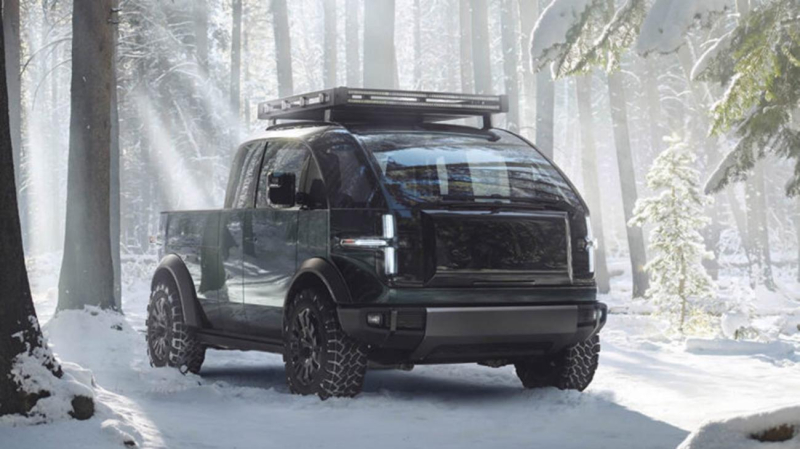
DR
And one less. The American startup Canoo, specialized in the design of electric vehicles, announced last Friday that it was filing for bankruptcy and immediately ceasing its activities. Recent talks to replenish the coffers with foreign capital have failed, and the company has failed to secure loans from the U.S. Department of Energy. Canoo, whose assets were worth just $126 million, owed more than $164 million to creditors. It is the sixth startup to cease operations in just over a year.
Founded in 2017 under the name Evelozcity, Canoo was able to attract investors with its idea of a modular platform, a “skateboard chassis” integrating all the essential components of the vehicle, such as the battery, electric motors and suspension in a single unit, to maximize interior space. The startup also distinguished itself by removing the mechanical column, replaced by an electronic “steer-by-wire” steering. Its business proposition was risky, banking on a change in mentality by offering vehicles on subscription but not for sale.
Reluctant investors and weary executives
Things had started off well for this startup. The rise accelerated after a merger with an acquisition company, an IPO in 2020 and then a $600 million fundraising. Canoo had even won contracts with NASA, the Pentagon, the US Postal Service and the State of Oklahoma.
The upturn was short-lived and economic reality caught up with the startup. The first difficulties appeared in 2021 and since then, the downfall was inevitable. Canoo, which had long hesitated to manufacture its vehicles itself or subcontract the production of its vehicles, causing significant delays, managed in 2022 to sign a contract with Walmart, already considered “miraculous” and “saving” at that time and covering an order of 4,500 to 10,000 vehicles.
Not enough to get things back on track. Financial difficulties accelerated last year, with the technical unemployment of around thirty and then a hundred employees at its factory in Oklahoma, the failure to obtain crucial financing, particularly from the US Department of Energy and the rapid depletion of cash, which stood at only around $700,000 in mid-November.
While waiting to raise new capital, Canoo was also facing operational tensions, with the departure of many executives, such as its CTO and its financial director. A second wave of departures took place last December.
With new investors not coming forward, in an “ultra-competitive” market, Canoo is closing its doors. “Recently, management has engaged in discussions with foreign capital sources,” the startup said in a statement. “Given that these efforts have been unsuccessful, the board of directors has made the decision to file for insolvency” under Chapter 7 of the Bankruptcy Act, it was announced on January 17.
The 6th startup in a year
Canoo recalls that it was unable to “obtain financial support from the U.S. Department of Energy’s Loan Program Office,” specifying that its debt to its creditors amounted to $164 million. But according to the bankruptcy filing in Delaware, its assets are worth just $126 million.
Liquidation under Chapter 7 of the U.S. bankruptcy law provides, among other things, for the sale of nonexempt assets, distribution of the proceeds to creditors, the discharge of most of the debts of the debtor and the permanent closure of the business in most cases.
This episode is reminiscent of that of Sweden's Northvolt, once a European champion in the manufacture of lithium-ion batteries, which declared bankruptcy last November. The company, founded by two former Tesla employees, had requested protection under the American bankruptcy law, “Chapter 11”.
The trend in this electric vehicle sector is much more marked since Canoo is the sixth start-up to declare bankruptcy in just over a year. Previously, it was Proterra, a manufacturer of electric buses, which ceased its activities. The Canadian truck company Lion Electric and Fisker, which designed an electric SUV presented as a competitor to Tesla's Model Y, are on the list.
You liked the article ? It mobilized our editorial staff, which lives only on your donations.
Information has a cost, especially since competition from subsidized editorial staff requires increased rigor and professionalism.
With your support, France-Soir will continue to offer its articles for free because we believe that everyone should have access to free and independent information to form their own opinion.
You are the sine qua non condition for our existence, support us so that France-Soir remains the French media that allows the most legitimate to express themselves.

